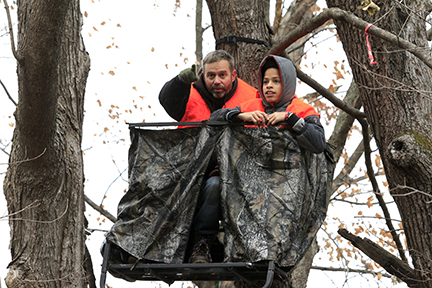 Dakota County manages deer populations in its parks by using controlled hunts. Controlling deer populations contributes to natural reforestation and reduces damage to agricultural crops and landscaping.
Dakota County manages deer populations in its parks by using controlled hunts. Controlling deer populations contributes to natural reforestation and reduces damage to agricultural crops and landscaping.
Reducing deer populations also improves the parks’ habitat for other wildlife that benefit from diverse ground and shrub layer plants.
2025 deer hunting options
-
Lebanon Hills Regional Park (archery): Register through Metro Bowhunters Resource Base
- Nov. 17–19, Nov. 24–26 — these are full-day hunts
-
Miesville Ravine Park Reserve (shotgun and muzzleloader): Register through Department of Natural Resources.
- Nov. 8–16, full day for the shotgun hunt (This is during the 3A season.)
- Dec. 6–14, full day for the muzzleloader hunt
-
Spring Lake Park Reserve (archery): No deer hunt in 2025.
No other deer hunting is allowed in Dakota County Parks.
Parks closed during controlled deer hunts
Lebanon Hills Regional Park and Miesville Ravine Park Reserve will be closed to the public during controlled deer hunting dates.
Important information and changes for 2025
- The Minnesota Department of Natural Resources will be processing registrations for the Miesville Ravine deer hunts.
Find out more about the Miesville hunt.
- Dakota County is partnering with Metro Bowhunters Resource Base to manage the Lebanon Hills archery hunt. Find out more about the Lebanon Hills hunt.
- There will not be a hunt at Spring Lake Park Reserve in 2025.
- The Miesville hunts will continue to be nontoxic ammunition only hunts. No lead ammunition is allowed.
Chronic Wasting Disease in Dakota County
Chronic Wasting Disease testing is mandatory in Lebanon Hills Regional Park and Miesville Ravine Park Reserve. To help hunters comply with requirements, the DNR will provide dumpsters to allow hunters to dispose of carcasses (head and spinal column) after quartering or butchering. Hunters can leave the CWD areas immediately after disposal in these dumpsters. For more information, go to the DNR's Chronic Wasting Disease page.